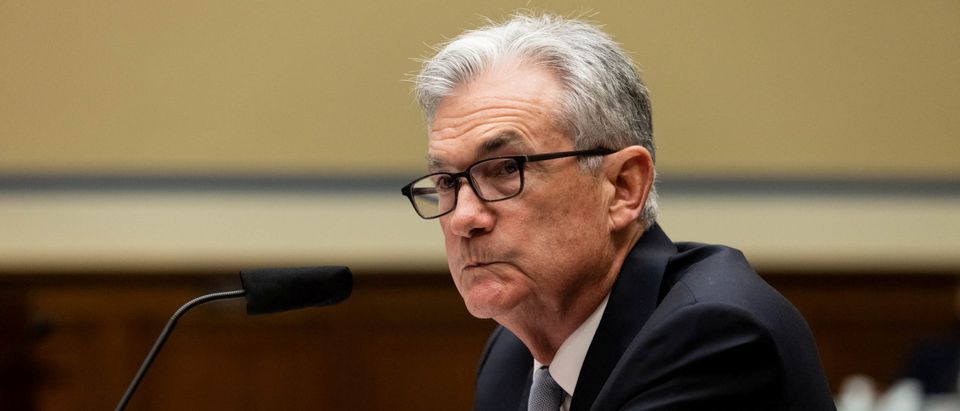The Federal Reserve hiked target interest rates by three-quarters of a percentage point Wednesday, projecting a slowing economy and a rise in unemployment in the near future.
The hike was reportedly made after recent data suggested that there has been limited progress in battling inflation, Reuters reported. The action raised the short-term federal funds rate to a new range of 1.5% to 1.75%, and is the biggest increase in benchmark interest rates since 1994, according to the outlet. (RELATED: Man At The Center Of US Inflation Woes Just Got His Job Back)
Fed officials are now projecting the rate to increase to 3.4% by the end of 2022 and 3.8% in 2023, which is significantly higher than the projected rate in March of 1.9% by the end of the year, the outlet reported. Gross domestic product (GDP) is now anticipated to increase by just 1.7%, down from 2.8% projections made in March, according to CNBC.
‘Put On Your Seat Belts On’: BlackRock President Warns Of Massive Shortages Due To Inflation https://t.co/ZbFkqFkrHm
— Daily Caller (@DailyCaller) March 30, 2022
The move is also expected to exacerbate financial pressures on Americans. In the immediate term, hiking interest rates often create higher rates on consumer and business loans, which ultimately slows the economy by forcing cuts to employer spending, according to Fox Business.
“Inflation remains elevated, reflecting supply and demand imbalances related to the pandemic, higher energy prices, and broader price pressures,” the Fed said in a statement Wednesday. The Fed went on to blame the invasion of Ukraine by Russia for “human and economic hardship” and COVID-related lockdowns in China for likely exacerbating issues in the supply chain.
How it started: How it’s going: pic.twitter.com/iBuiX7Gk8G
— Zack Voell (@zackvoell) June 15, 2022
Policymakers had previously approved a 50-basis point hike in May and outlined a roadmap for similar increases at upcoming meetings had the data evolved as anticipated, Fox noted. The data did not evolve as expected, particularly after the consumer price index rose 8.6% in the year ending in May, the fastest since December 1981.
Federal Reserve chairman Jerome Powell said that there were no signs that monthly inflation was flattening or starting to fall, and that “strong action was warranted” as a result. The move was part of the soft-landing Powell and his peers are attempting to manufacture as the economic conditions of the country continue to trend toward recession, the outlet noted.


